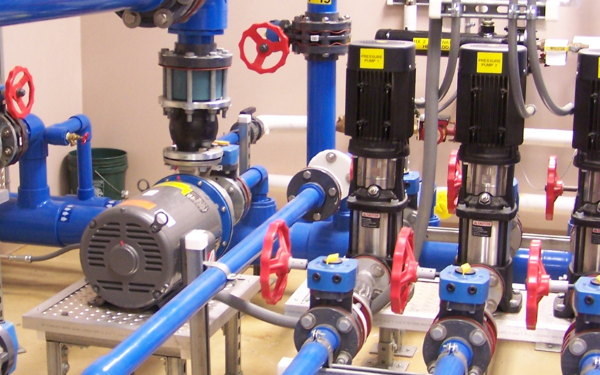Capacity Development Program
Capacity Development is the process through which water and wastewater systems acquire and maintain adequate technical, managerial, and financial capabilities to enable them to consistently provide safe drinking water and proper sanitation. In 2022, Alaska updated its Capacity Development strategy to support, promote, and improve the sustainability of Alaska’s Public Drinking Water and Wastewater Systems.
Efforts include water and wastewater system training, technical assistance, financial review of new public water systems, and coordination with other State, Federal and local agencies that are providing assistance to public water and wastewater systems.
Resources to Strengthen Technical, Managerial, and Financial Capacity of Water and Wastewater Utilities
Technical Capacity

- Drinking Water Sampling Instructions: Guidebook and Wallchart
- Drinking Water Watch Database, Monitoring Summary Access
- Reimbursement Program for Water Operator Training
- Operator Certification and System Classification Database
- EPA’s Overview of Technical Assistance for Infrastructure
- Guidance for Wastewater Sampling Compliance
Managerial Capacity

- Quick Guide for Newly Onboarded Utility Staff
- Training opportunities for utility operators and administrators
- 2025 Rural Utility Calendar with key reminders for Operators and Administrators
- Operation & Maintenance (O&M) Best Practices
- RUBA's O&M Best Practices Dashboard
- Find your community's assigned Local Government Specialist in the RUBA Program
Financial Capacity

- State Revolving Fund Program
- Village Safe Water Program
- Affordability Model as Tool for Setting Water and Sewer Rates
- AML Alaska Drinking Water & Wastewater Funding and Resource Guide 2024
- Interactive Tools for Owners and Operators | US EPA
- Water Technical Assistance (WaterTA) Engineering Support | US EPA
Additional Resources

- Capacity Development Information | US EPA
- SFY2024 Annual Capacity Development Report to EPA
- 2023 Triennial Capacity Development Report to the Governor
- 2022 Alaska Capacity Development Strategy
- Drinking Water and Wastewater Resilience | US EPA
- Information about Asset Management | US EPA
- PFAS Communications Toolkit | US EPA
Capacity Development (CapDev) News and Highlights
NEW! Training for Small Urban Water Utilities: The CapDev program has developed courses tailored to administrators and operators of urban water systems found in homeowners’ associations, subdivisions, and trailer parks. These courses are titled “What is a Water Utility”, “Financial Management for Small Water Utilities”, and “Asset Management for Small Water Utilities”. At this time, these courses are offered at no cost. Class information can be found on the Alaska Coalition Training Calendar. Please contact the Capacity Development Program if you are interested in this training opportunity!
Tools for Communities with Wastewater Lagoons: Small, rural, and Tribal communities using lagoons commonly face challenges with Clean Water Act compliance. These communities may need more technical and financial capacity to identify paths forward for improving their systems and securing necessary funds for projects. The U.S. EPA has developed the Small Lagoon Community Economic Streamlining (SLCES) Tool and the First Stop Toolbox for Lagoons to help communities resolve common challenges and improve operations.
News on Per- and Polyfluoroalkyl Substances (PFAS): The U.S. EPA continues their charge to research and implement controls to protect the public from PFAS. A new test order for PFAS was recently issued as part of the National PFAS Testing Strategy, a component of the PFAS Strategic Roadmap. Two institutions were also awarded 3.2 million dollars to further research the impact of these chemicals. Find EPA’s PFAS related press releases.

 Indicates an external site.
Indicates an external site.